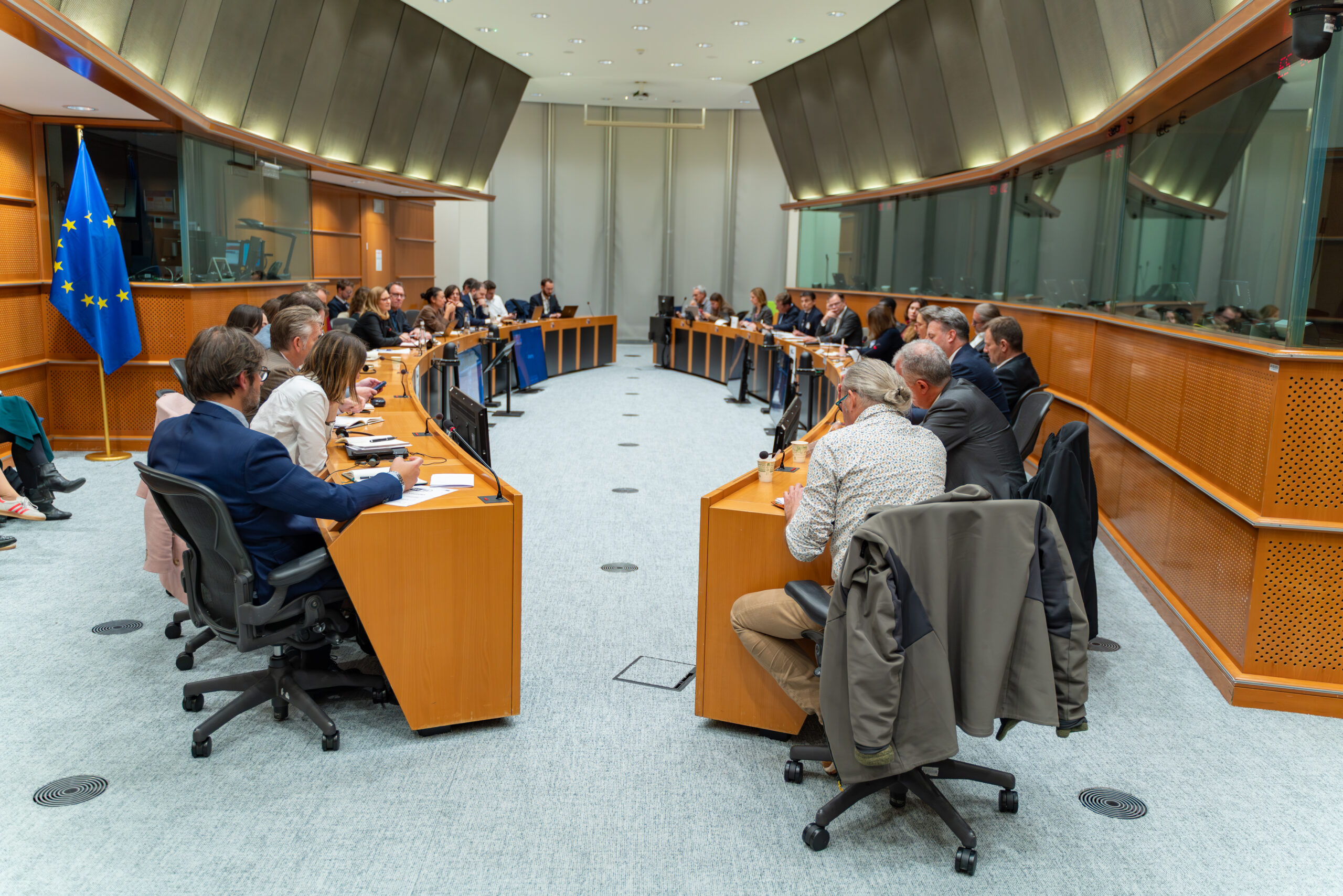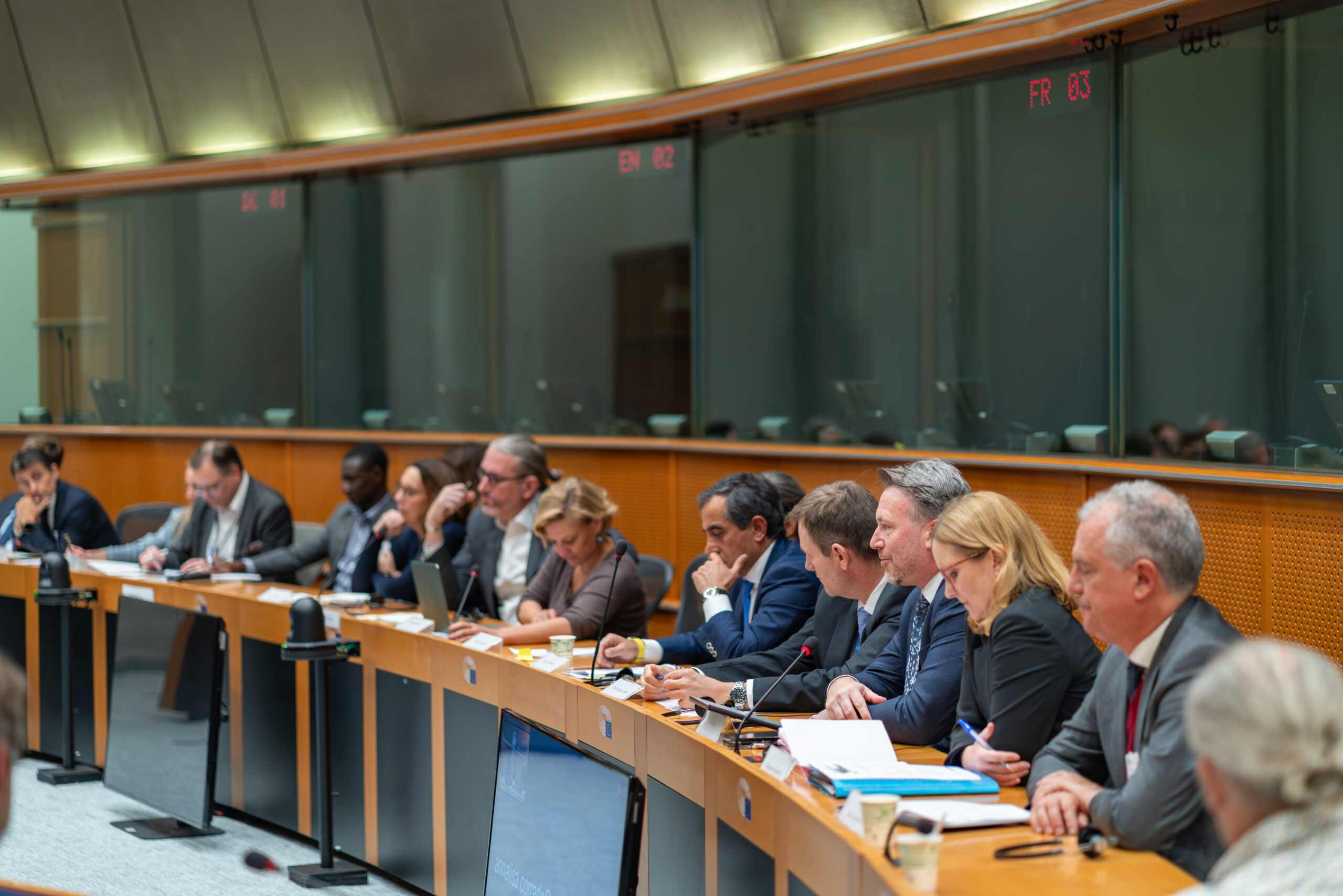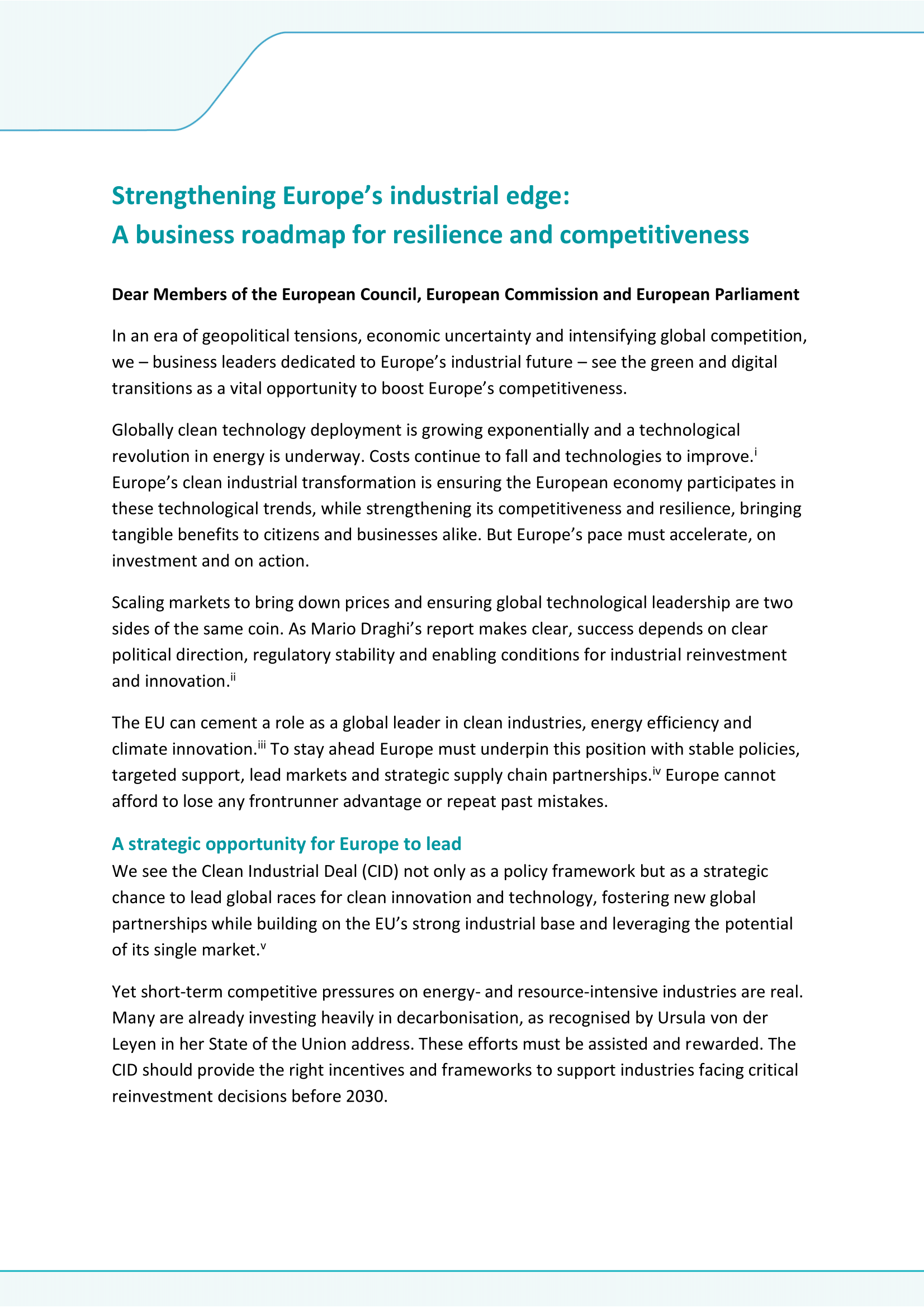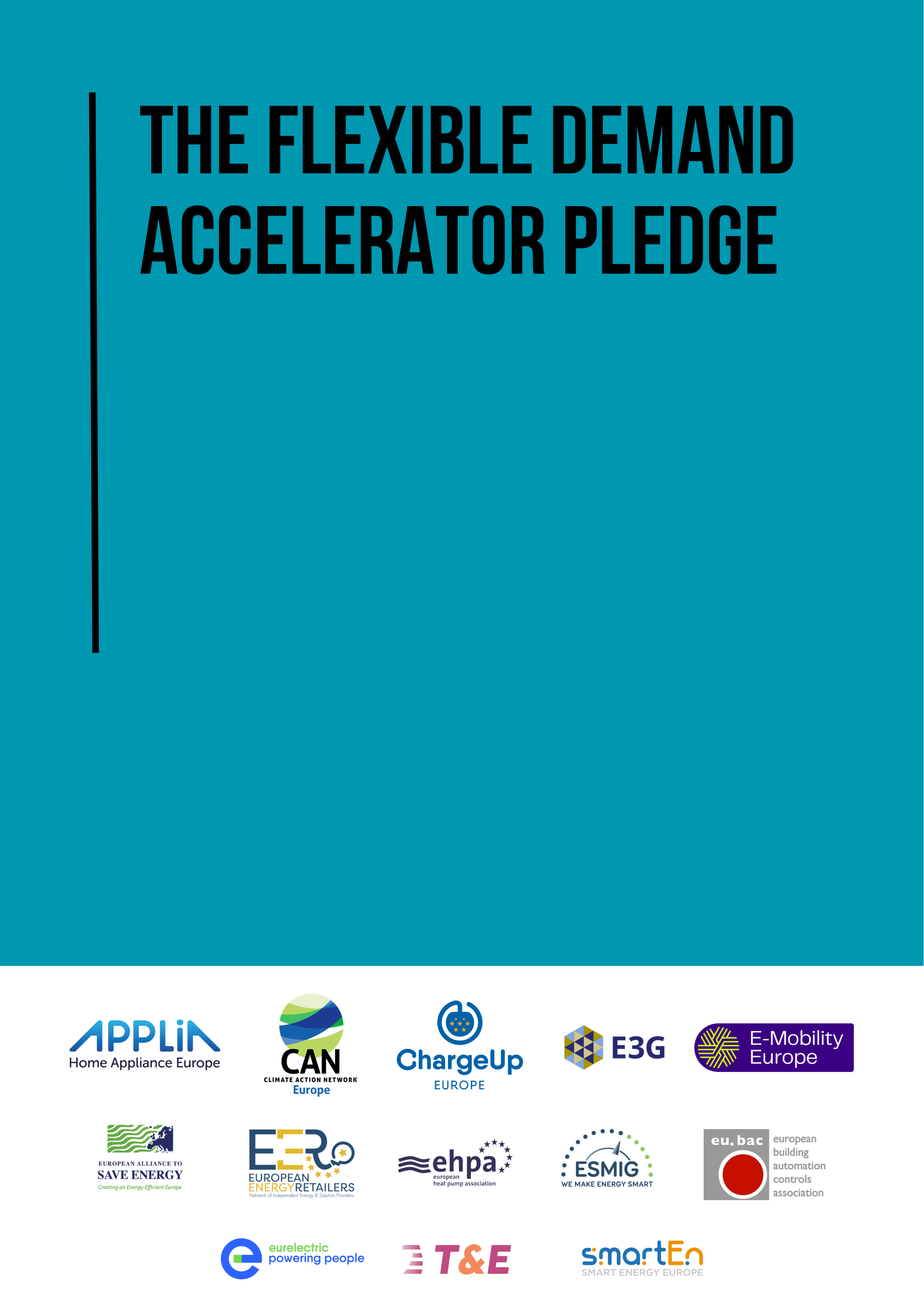EU-ASE Response to the Affordable Housing Plan Public Consultation
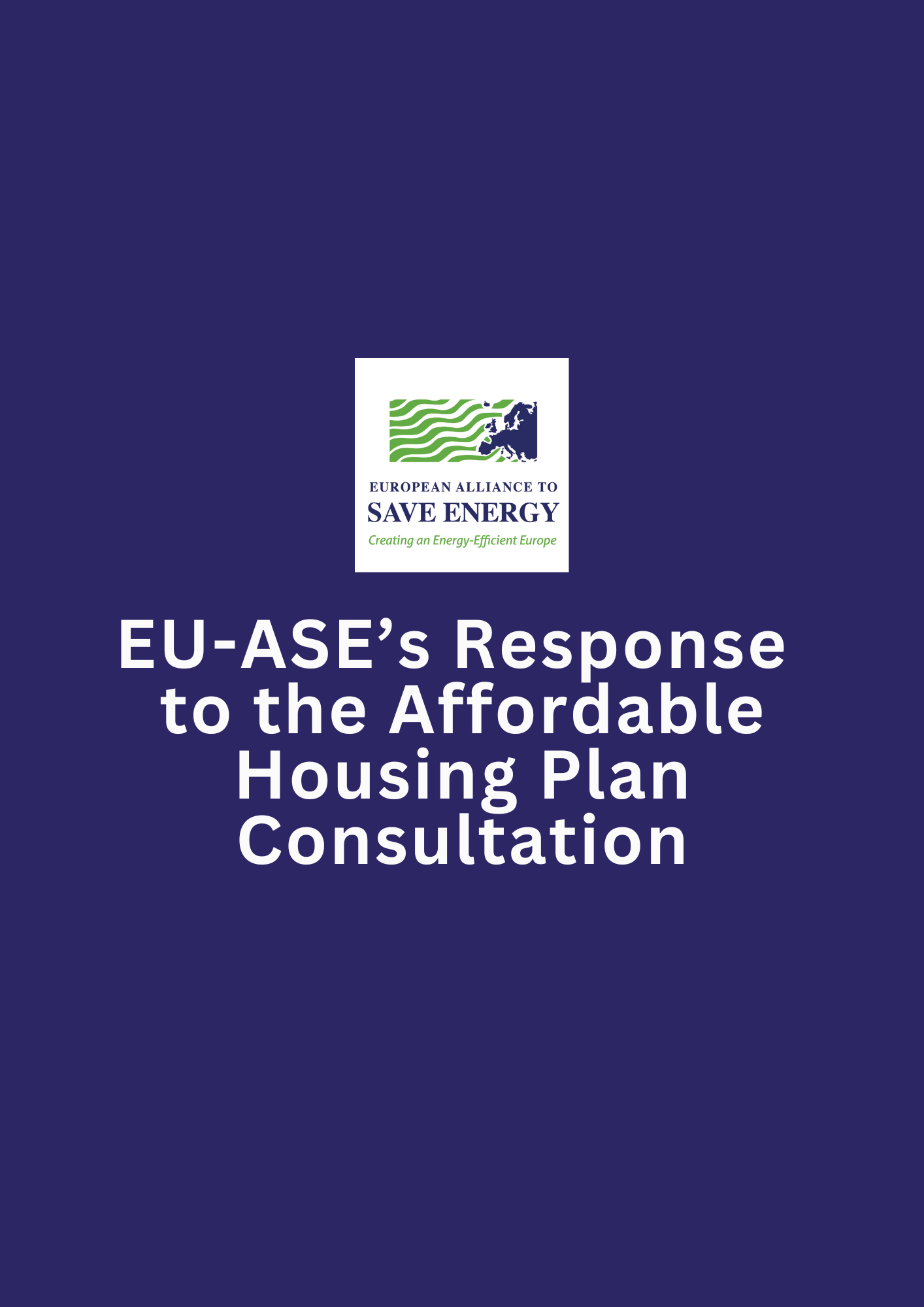
The European Alliance to Save Energy welcomes the European Commission’s efforts to develop an Affordable Housing Plan.
Affordable housing must be linked to energy efficient housing .Repurposing and renovation projects should systematically incorporate energy efficient retrofits, reducing energy demand, optimising consumption and lowering operational costs. This approach improves comfort, sustainability and affordability simultaneously.
Urban areas in particular offer significant opportunities: around 75% of existing buildings are inefficient, and most will remain standing in 2050. Effective implementation of the EPBD is therefore crucial to improve energy performance and reduce energy bills.
The EU framework, including the EPBD and Article 6 of the EED, provides clarity and stability for investment in affordable housing. The Plan should ensure full implementation across Member States to deliver both energy efficient and affordable homes for all Europeans.
In a fast-changing political and economic environment, 2025 was a year of continued efforts to strengthen security, stability, and competitiveness for European businesses.
Throughout the year, our work demonstrated that energy efficiency is not only essential to achieving climate goals, but also a key driver of innovation, energy independence and sustainable long-term growth across Europe.
Strong engagement with policymakers, combined with the successful organisation of the 4th European Energy Efficiency Day, highlighted the importance of collaboration and dialogue in advancing shared objectives. Partnerships across sectors and institutions remained central to delivering impact and shaping effective energy policies.
Looking ahead to 2026, we will intensify our efforts to secure the regulatory certainty that can accelerate the energy transition, while providing businesses with the investment confidence they need and strengthening Europe’s competitiveness.
Read the full Activity Report here.


